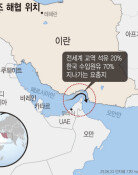Guards of Traditional Gates Talk About Their Jobs
Guards of Traditional Gates Talk About Their Jobs
Posted September. 22, 2010 15:41,
Namdaemun, a traditional gate and Korea`s No. 1 national treasure, was hit by an arson attack on Feb. 10, 2008, in a huge shock to the Korean people. At the time, they were enjoying the last days of the Lunar New Year`s holidays.
To protect the nation`s cultural assets, the Seoul city government has dispatched a combined 133 guards to the capital`s 23 major cultural assets. Among them, 35 are dispatched at the four main gates of Heunginjimun, Changeuimun, Hyehwamun and Gwanghuimun. The guards are all older than 55, reflecting government efforts to create jobs for the elderly.
As always, these guards opted to work over the Chuseok (Full Moon Harvest) holidays this year. They will eat a normal lunch and dinner instead of songpyeon, a traditional rice cake served at Chuseok. But they say they are more than happy to work since their jobs are to prevent the nightmare of two years ago from recurring. The Dong-A Ilbo talked to the four guards.
o `My family is my strength`
"Who would have imagined such a horrible incident would happen at the Lunar New Year`s holidays? Our duty is to guard the gates while others are resting so that our valuable assets can be safely passed on to our descendants."
So said Lee Hyo-geun and Kim Yeong-su two 65-year-old men who guard Changeuimun and Hyehwamun. They share a common background in being born in the year Korea was liberated from Japanese rule in 1945 and working as civil servants.
Lee was a neighborhood patrol officer at the Jongro Police Station of Seoul and Kim was a grade 6 civil servant at Jongro`s ward office. They started new careers as gate guards, overcoming depression after retirement.
"The four gates are equipped with surveillance cameras but still need our hands at places where the security system cannot reach. Since many people visit the gates, we have to keep a close eye to prevent unexpected incidents," Lee said.
The guards work three shifts a day -- 6 a.m. to 2 p.m., 2 p.m. to 10 p.m., and 10 p.m. to 6 a.m. Each guard works eight hours a day for three straight days and then takes a day off.
Lee has to work at night and Kim in the afternoon over the three days of Chuseok. Duties include fire prevention and CPR for emergency patients. They also conduct tours for foreigners and get paid 38,000 won (33 U.S. dollars) daily at daytime and 57,000 won (49 U.S. dollars) at nighttime.
They were moved to tears when the topic shifted to family. Born in Gangjin County in South Jeolla Province, Lee said, "Every time I see people get on trains heading for their hometowns on TV, I think about my parents."
The Seoul-born Kim said, "My wife is worried about me and wants me to stop working. But it is heartening to see that my family cares about me."
o `I`m committed`
Yeom Won-pyo, 64, who has been working at Heunginjimun since January this year, visited his parents` graves in Geumsan County, South Chungcheong Province, a week ago after finishing his morning shift. He decided to visit early since he has to work over the Chuseok holidays.
His duties include patrolling and cleaning the lenses of surveillance cameras and inside and near the gate area. He said he apologized to his late parents for not being able to visit them on Chuseok Day.
His two daughters are married and living separately, and often come to see their father when he comes home after work. Conveniently, they live in Seoul and can freely see Yeom.
Many unexpected things happen in Heunginjimun since it is adjacent to a large retail market with a large floating population. It has become an everyday sight for people who wait at a crosswalk across the prohibition line to avoid sun, elevating cause for concern.
Yeom said, "In summer time, people drinking on grass near the gate often break bottles and turn violent. We have to be alert every second."
Kim Gwang-ung, 66, who has guarded Gwanghuimun since March last year, also has to work over the holiday from 11 p.m. to the following morning. "When I`m tired, I endure it by looking at the beautiful scene the gate lighting offers," he said.
"There`s nothing more meaningful than preserving the nation`s cultural assets. It`s not something anyone can do. When I`m committed, not being able to rest is no matter for me at all."
bsism@donga.com jjj@donga.com







